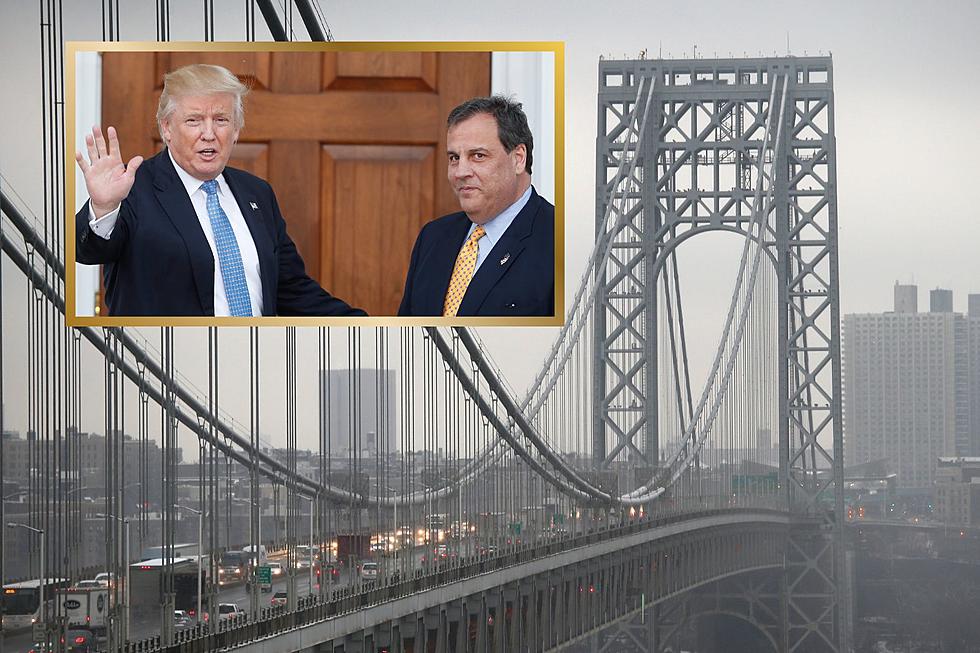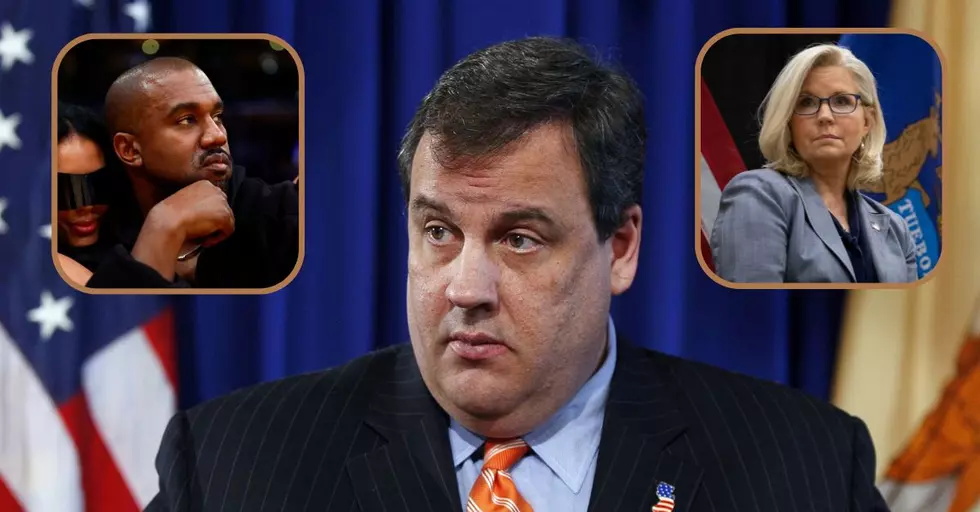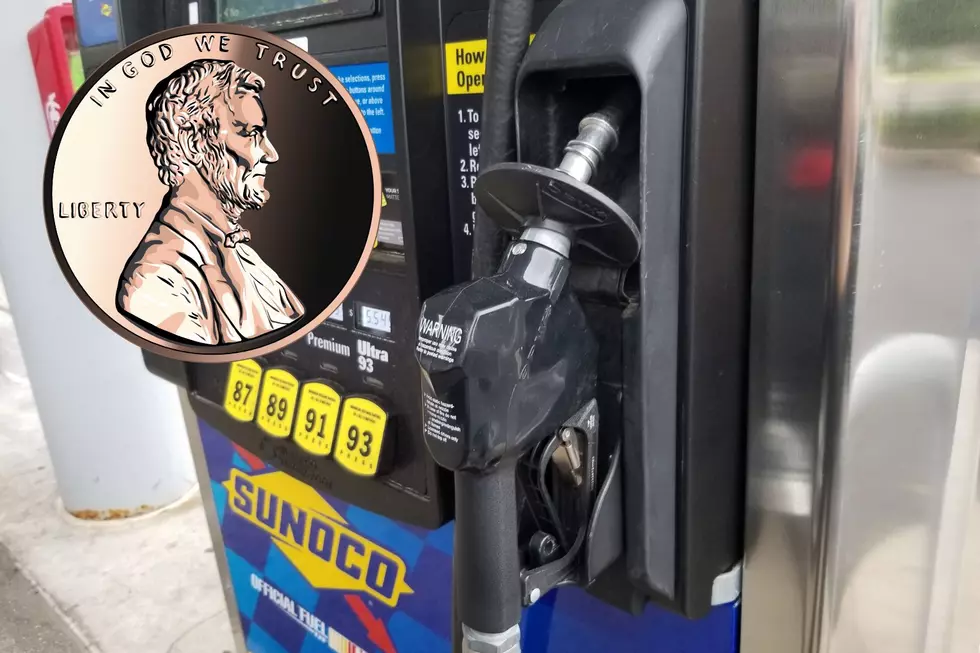Christie defends plan to raise NJ gas tax: ‘It’s the right thing to do’
TRENTON — Gov. Chris Christie defended his deal to raise the gas tax in exchange for a cut in the sales tax at a Statehouse news conference and said he'll push for the reluctant Senate to approve it Thursday.
"The fact is that we need to spend this money in order to continue to modernize our roads, our bridges and, importantly, our mass transit system," Christie said.
"I've never signed a tax increase in the seven years as governor. Not particularly thrilled to have to sign this one. But I've said all along that if that represented tax fairness, that I would do that," said Christie, who noted that national anti-tax activist Grover Norquist of Americans for Tax Reform has endorsed the Christie/Assembly plan.
Two days ago, Christie struck a deal with Assembly Speaker Vincent Prieto to raise the gas tax 23 cents a gallon in exchange for reducing the state's sales tax from 7 percent to 6.5 percent at the start of 2017, and 6 percent at the start of 2018. The Assembly passed the plan early Tuesday morning, and Christie said he'd sign it that bill Thursday if the Senate approves it.
The proposal has met a frosty reception in the Senate, however, which prefers the plan it developed in months of deliberations that included tax cuts — now seemingly scuttled — for wealthy estates, charitable donations and the working poor. The tax cut preferred by Christie would be about twice as costly in terms of reduced state tax collections.
"I suspect when all the press releases and the talking is done that this will pass the Senate as well, because it's the right thing to do," Christie said.
The idea of a higher gas tax also angers some commuters, though advocates for a $2 billion a year construction plan say it's the most logical way to pay for road, bridge and rail improvements.
"Well of course they're not (happy). They don't want to pay more. I understand that," Christie said. "But that's why it's so important to give them a sales tax cut at the same time."
Public not on board
The plan was met with skepticism all week by New Jersey 101.5 audience members, who flooded our Facebook page with comments about the gas tax plan.
“Raising the gas prices with the ploy that they can lower the sales tax makes no sense,” Debbie Martinez said. “After paying exorbitant gas prices during the summer to travel, no one will be able to afford as much shopping.
“Lowering the sales tax is not going to be felt by most people in New Jersey because once the businesses have to raise their prices to compensate for the new gas tax, the end result is going to be higher prices which in turn will equal the same revenue in sales tax,” Allie Z Denek said.
“Raise the gas tax and the price of everything goes up, and guess what no one gets a raise from their employer,” Allyson Cacioli said. “Higher gas prices higher grocery bills....how exactly is a 1% decrease of sales tax in 2018 going to help anyone?”
If the impact is basically a wash, just simply dedicate 1% of our current 7% sales tax to the TTF,” Walter Heck said. “They won't do that, because it is not "basically a wash". !!!”
Reluctant lawmakers
Assemblyman John Wisniewski, D-Middlesex, suggested today that the Legislature not approve a gas tax immediately and instead approve borrowing enough money to support transportation projects for at least 18 months — pushing a longer-term solution off until after Christie's term ends in January 2018.
"Look, worst-case scenario, we should look at creating an 18-month program that will get the trust fund funded until this governor leaves and a rational occupant of the front office can deal with this issue," said Wisniewski, a potential gubernatorial candidate.
The higher gas tax was designed to take effect Friday, though that would be delayed if the Senate doesn't vote to approve it Thursday in one form or another.
Democratic senators said they wouldn't support it, and Politico New Jersey reported Wednesday that no Republican senators back the Christie/Assembly plan. Christie disputed that report.
"There was no chance that day, and I don't see anything different, for the Senate to be passing this plan," said Senate Majority Leader Loretta Weinberg, D-Bergen. She said the Senate plan isn't universally loved but that "it was the most practical solution to how we could get something through which had bipartisan support."
"Everyone here, everyone behind me here, won't accept that because we care about things that matter," Sen. Raymond Lesniak, D-Union, said at a Statehouse news conference. "And we will never, never ever support the coalition that came out in favor of cutting almost $2 billion a year out of the state budget."
Christie said the Senate must vote on the bill Thursday -- "We need to get it done by tomorrow," he said -- because the TTF authorization expires June 30. The urgency was a marked contrast to his months of statements refuting the idea that the TTF is facing a funding crisis. Treasury officials have said the TTF can pay its bills into early August.
"For months now they've been saying, 'This crisis is occurring on June 30. The crisis is occurring on June 30. They governor must act by June 30.' Now I've acted and gotten half of the Legislature to do it, and because they don't like it, and they feel momentum going towards this plan, now they're saying delay. No delay," Christie said.
"If they don't do anything, then all the steps I have to take to continue to keep transportation projects going and the costs associated with it will be on them," Christie said.
"It's irresponsible. They have all the information they need to make a decision. Time to step up and make a judgment," Christie said. "... We need to get this done. There's no reason we can't get it done tomorrow."
Reducing the sales tax by one-seventh would yield a drop in state revenue of around $1.4 billion currently. But that would grow over time, as sales tax revenues expand with natural growth in the economy.
Both the Senate and Christie/Assembly proposals also include a tax cut on retirement income, such as pensions. That would create a smaller but still significant drop in state revenues. Christie said 81 percent of retirees would pay no New Jersey income tax, once the plan is fully implemented.
Combined, according to New Jersey Policy Perspective, the two tax cuts would lead to a drop in state revenue of more than $17 billion over 10 years. The impact would reach $2 billion a year by 2023.
The net tax cut — sales and retirement income tax gains minus the higher gas tax — would amount to less than $10 a year for the lowest 40 percent of household incomes, those under $49,000, according to NJPP. It would equal a negligible 0.02 percent of their income, according to the analysis.
It would amount to $63 for households with incomes of $49,000 to $79,000; $131 for those with incomes of $79,000 to $132,000; and $191 for households with incomes of $132,000 to $286,000. The cuts would be larger in total dollars, though smaller as a percentage of income, for households with incomes over $286,000.
Middle-income households would see the biggest benefit of that approach, in percentage terms; the net cut would amount to 0.1 percent to 0.13 percent of their income.
Christie calculates the tax impacts differently. He says the sales tax cut would save the average family $435 a year and that the gas tax hike amounts to $100 a year per driver. He also says a driver could expect to shave car repair costs by $600.
New Jersey: Decoded cuts through the cruft and gets to what matters in New Jersey news and politics. Follow on Facebook and Twitter.
Michael Symons is State House bureau chief for NJ 101.5 and the author of New Jersey: Decoded. Follow @NJDecoded on Twitter and Facebook. Contact him at michael.symons@townsquaremedia.com
More From 92.7 WOBM










